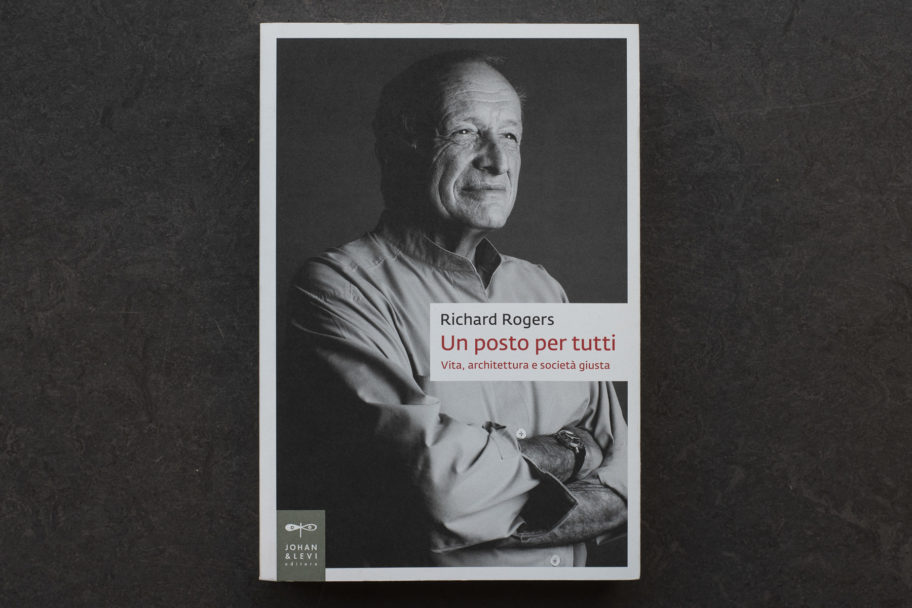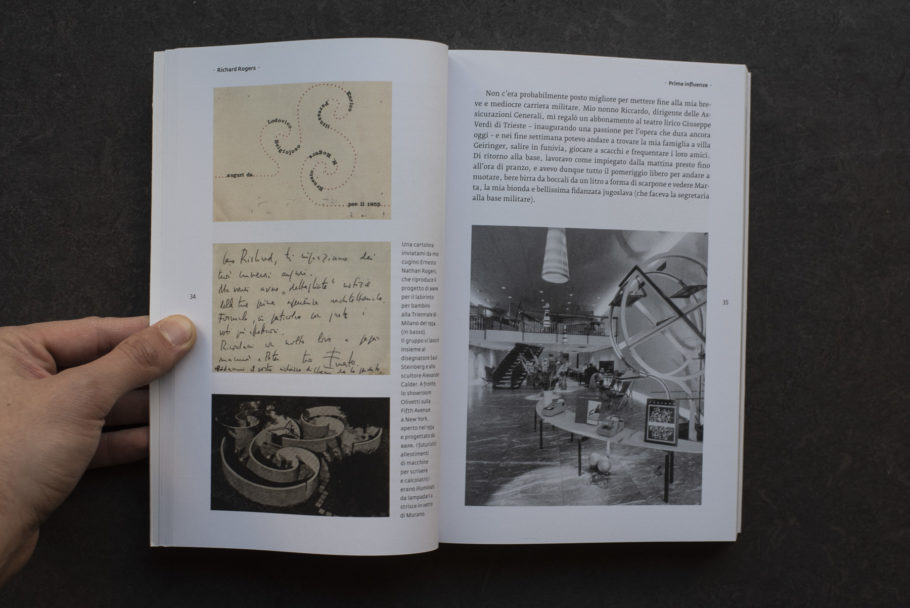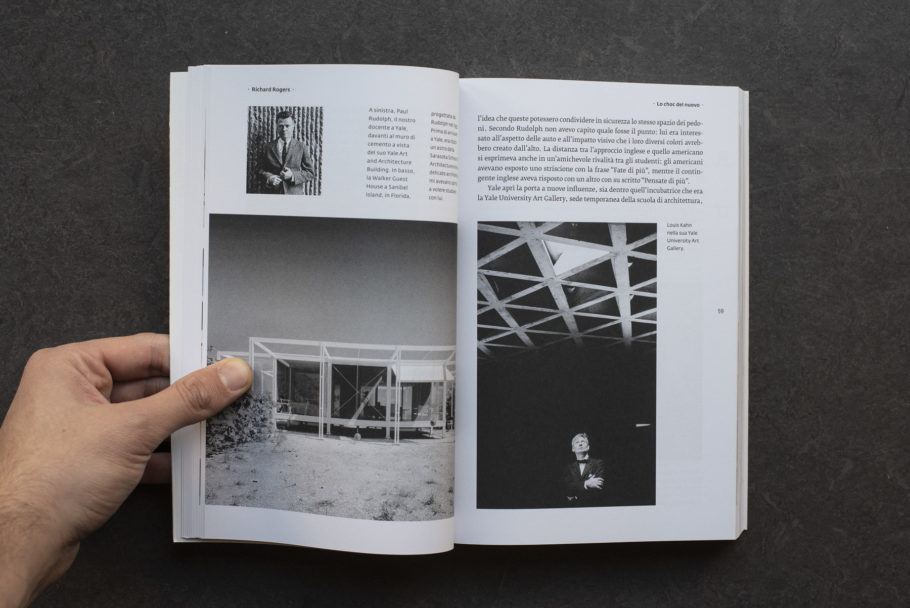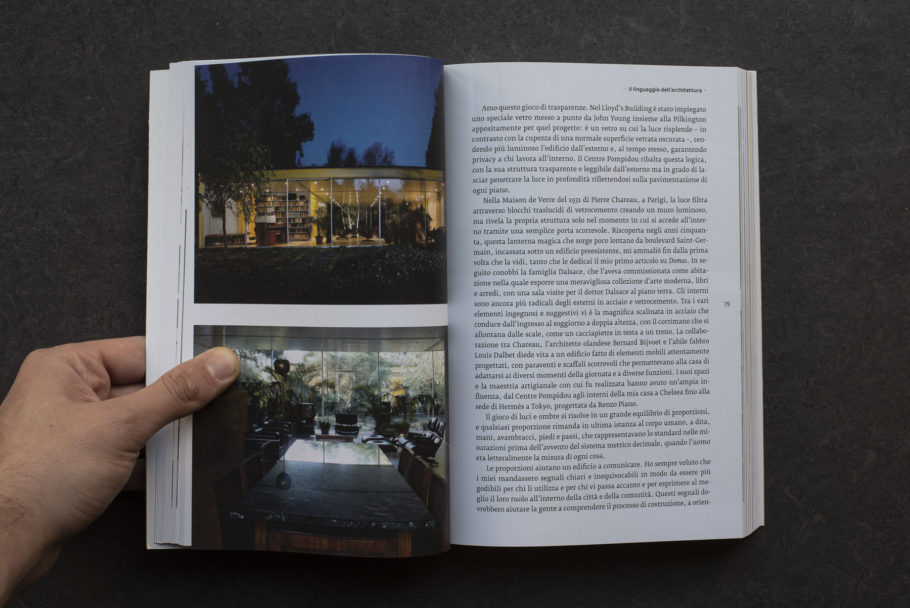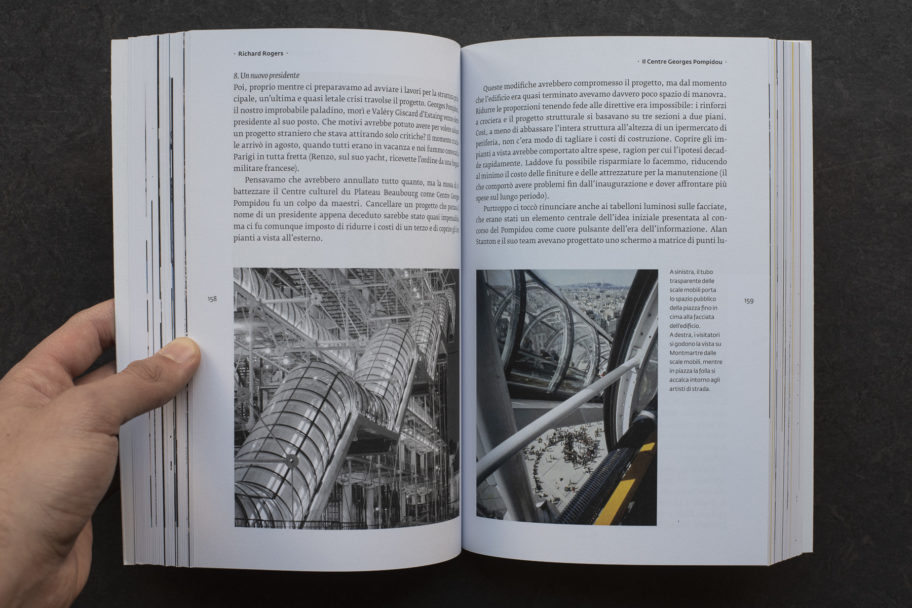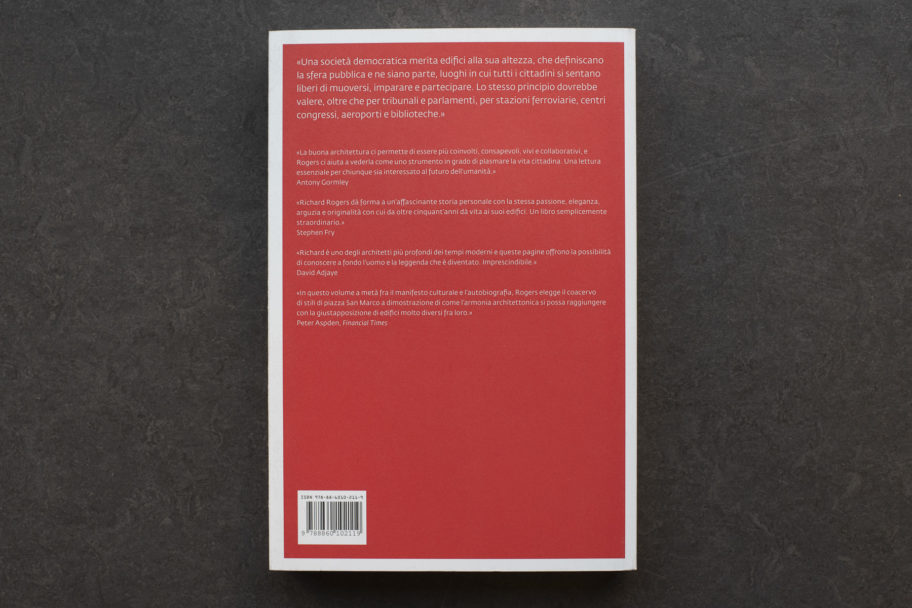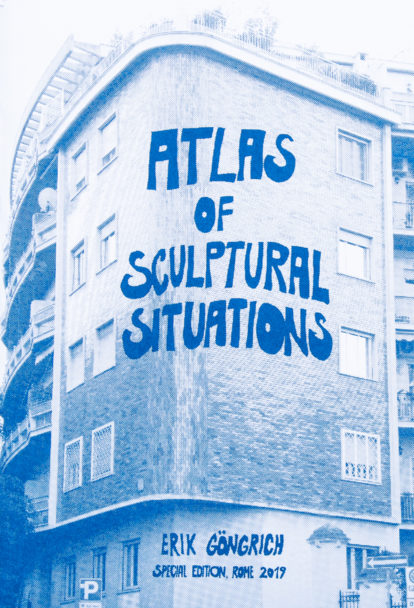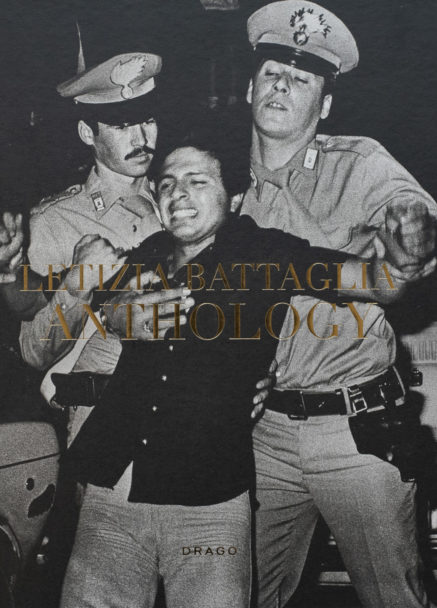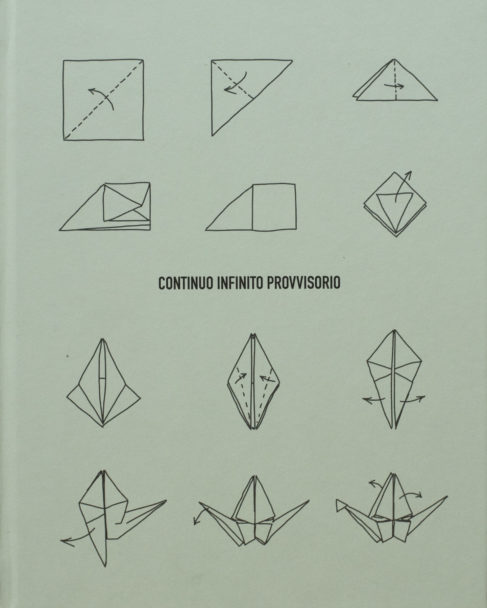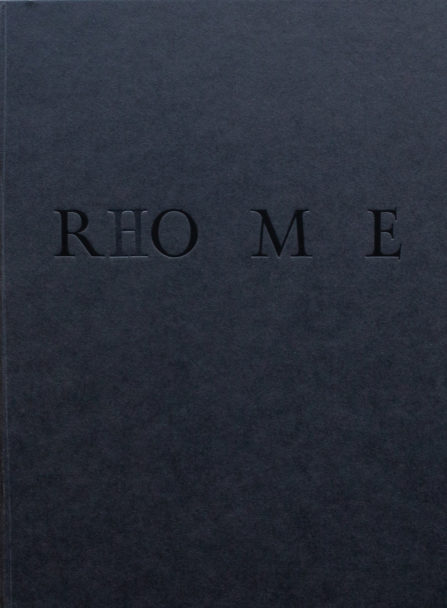
Richard Rogers, UN POSTO PER TUTTI – VITA, ARCHITETTURA E SOCIETÀ GIUSTA, 2018
36 Euro
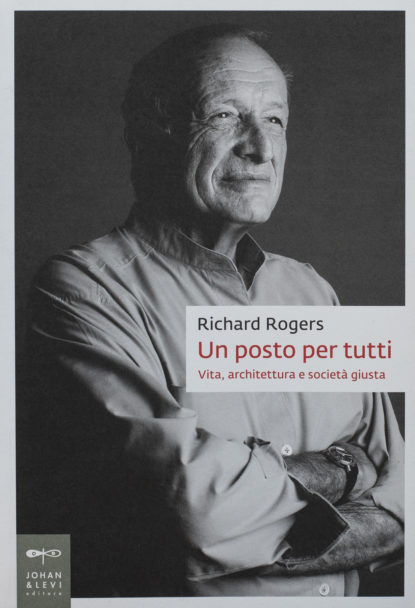
2 in stock
This book is much more than just an autobiography. It is a jazz improvisation featuring a fusion of personal memoirs and ideas for a better society. It encompasses projects, drawings and photographs, partnerships and disputes. The author expresses his passion for big cities and public spaces, his love for his family and friends, his trust in education and active citizenship. However we want to read it, it makes us realize how architecture is a fundamental tool for tackling the two great challenges of our age: social inequality and climate change.
Born in Florence in 1933, amidst the modernist structures designed by his cousin Ernesto Nathan Rogers and a view of Brunelleschi’s dome, Richard Rogers soon grasped that good architecture has to reflect changing technology and the spirit of the age. Consequently, having completed his studies at Yale – where he met his future partner Norman Foster – he embarked on a road trip in search of innovative ideas and design solutions: the strong colours of California and Mexico, the open structures of industrial architecture, and the lightness and transparencies of the Case Study Houses proved great sources of inspiration, becoming a constant feature in that visual vocabulary that he brought with him when he returned to London. Parkside, the Wimbledon home built for his parents between 1968 and 1969, was the first result of his American experience and encapsulates his entire architectural ethos: the daring use of colour and eco-sustainable prefabricated elements, the importance of transparency and flexibility. It was a prototype for a building that lends itself to multiple changes of use, embodying our “long-lasting, widely adaptable, low-energy” diktat. It was also his last family building project before he was swallowed up, together with Renzo Piano, in the whirlwind of the competition for a major public building in the heart of Paris.
Today, more than forty years after the deluge of criticism that surrounded its construction and opening, the Pompidou Centre continues to be an undisputed icon of modernity and one of the pulsating hearts of city life, demonstrating that architecture has the power to shape our lives: good architecture brings humanity and civilization, bad architecture brutalizes.
Richard Rogers
Johan&Levi
2018
372 pages, 15,5 x 23 cm
300 b/w and coloured illustrations
Italian
